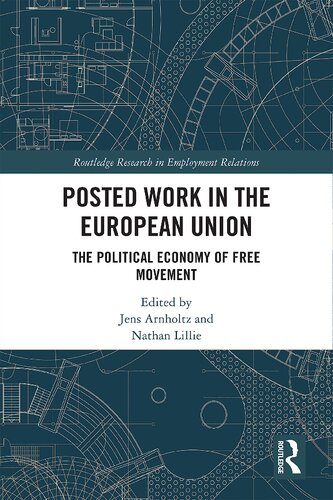

Most ebook files are in PDF format, so you can easily read them using various software such as Foxit Reader or directly on the Google Chrome browser.
Some ebook files are released by publishers in other formats such as .awz, .mobi, .epub, .fb2, etc. You may need to install specific software to read these formats on mobile/PC, such as Calibre.
Please read the tutorial at this link. https://ebooknice.com/page/post?id=faq
We offer FREE conversion to the popular formats you request; however, this may take some time. Therefore, right after payment, please email us, and we will try to provide the service as quickly as possible.
For some exceptional file formats or broken links (if any), please refrain from opening any disputes. Instead, email us first, and we will try to assist within a maximum of 6 hours.
EbookNice Team

Status:
Available5.0
34 reviewsFocusing on posting of workers, where workers employed in one country are send to work in another country, this edited volume is at the nexus of industrial relations and European Union studies. The central aim is to understand how the regulatory regime of worker "posting" is driving institutional changes to national industrial relations systems. In the introduction, the editors develop a framework for understanding the relationship of supra-national EU regulation, transnational actors and national industrial relations systems, which we then apply in the empirical chapters. This unique volume brings together scholars from diverse academic fields, all of whom are experts on the topic of "worker posting." The book examines different aspects of the posting debate, including the interactions of actors such as labour inspectorates, trade unions, European legal/political regulators, manpower firms, transnational subcontractors and posted workers.
The main objective of this book is to explore the dynamics of institutional change, by showing how trans- and supra-national dynamics affect European industrial relations systems. This volume will represent the "state of the art" in research on worker posting. It will also contribute to debates on European integration, social dumping, labour market dualization and precariousness and will be of value to those with an interest employment relations, law and regulation.